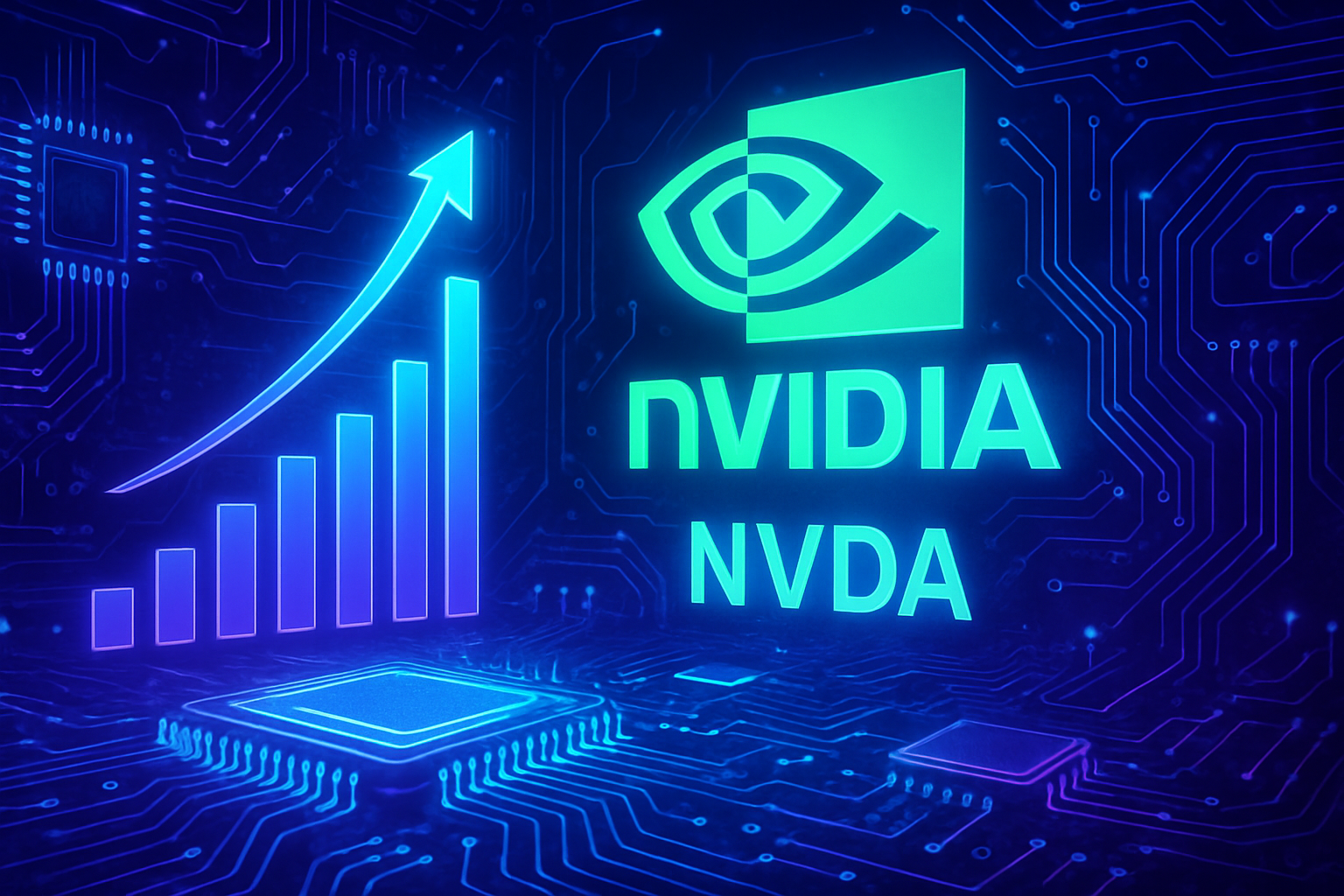The *AI server* revolution is redefining the contours of the electronics industry in Taiwan. Manufacturing giants *such as Foxconn and Quanta* are forced to reinvent their strategies in the face of a rapidly changing technological context. The meteoric rise of artificial intelligence leads to a *radical transformation* of the economic dynamics, where AI-derived products quickly surpass traditional consumer electronic devices. Rooted in a research and production expertise, Taiwan is poised to capitalize on this renewed interest while adapting to the high demands of modern infrastructures. Geopolitical challenges and the localization of production exacerbate the necessity for this strategic pivot.
The transformation of the Taiwanese industrial landscape
The rise of AI servers has radically transformed the industrial landscape in Taiwan. Traditional companies, historically focused on consumer electronics, are experiencing unprecedented fortunes. AI servers, generating higher revenues than iPhones, are redefining the economic priorities of manufacturing giants such as Foxconn and Quanta.
The Taiwanese dominance in the server sector
Taiwan holds a predominant position in the global server manufacturing industry, accounting for over 90% of AI server builds. This dominance results from years of accumulated expertise, initially gained from the laptop industry. This expertise has transformed into a strategic advantage in the face of the growing demand for artificial intelligence solutions.
The Taiwanese Ministry of Economic Affairs reported that the island’s server production reached NT$426.7 billion in just seven months. This figure, surpassing the total for the year 2023, embodies an annual growth rate of 153.9%.
Revenue evolutions of major players
Companies such as Wistron and Quanta are showing spectacular increases in their revenues. For instance, Wistron, a partner of Nvidia, recorded a 92.7% increase in sales for the period from January to July. Quanta, on the other hand, saw its revenue grow by 65.6% during the same period.
For Foxconn, the leading contract manufacturer, the situation has also changed significantly. Indeed, revenues from consumer electronic products account for only 35% of its total revenue in the second quarter of this year, while the cloud and networking sector surged to 41%.
Quanta Computer’s strategic projects
Quanta Computer, a supplier of AI servers equipped with Nvidia chips, anticipates that these servers will represent 70% of its server revenue this year. With improved yield rates and progress in the use of GB300 chip-based servers, the company is quickly capturing market share.
With a market share of around 17%, Quanta is focusing on AI server projects for major cloud service providers like Microsoft and Amazon. The company has secured orders for the latest Nvidia servers, expanding its production capacity to meet growing demand.
Wistron: between opportunities and challenges
Wistron has strategically positioned itself by receiving orders for various Nvidia server models, as well as for the new AMD MI300 series AI server cards. The company has seen Nvidia reserve its entire factory located in Taiwan for AI server manufacturing, highlighting the urgency and importance of this demand.
At the same time, Quanta is looking to increase its AI server production capacity in the United States, with demand already saturating its factories until the end of 2025, illustrating the growing need for sophisticated infrastructures.
Financial impact and market outlook
The financial impact of AI servers on the Taiwanese industry is unmatched. Figures reveal that AI servers are expected to account for 70% of Quanta’s total revenue this year. A similar trend is observed at Wistron, whose revenues for the first half of 2025 showed a remarkable increase of 92.7%.
The AI server market provides financial stability with multi-year production contracts extending until 2026. This is indicative of sustained demand, rare in the era of consumer electronics.
Strategic implications and future positioning
The monthly sales of Taiwanese ODM manufacturers in the first half of 2025 illustrate a significant trend. Players such as Foxconn are positioning themselves to meet this growing demand, altering their production strategies. Competition is now focusing on technical engineering and collaborations with chip designers.
This paradigm shift is steering Taiwan towards a new dynamic in the global technology supply chain. The need for more sophisticated manufacturing and rigorous quality control is increasingly felt.
Challenges loom on the horizon, as Taiwan’s current share of 90% in the global AI server market could diminish due to the emergence of new production facilities abroad. Companies are now setting up in the United States, Mexico, and elsewhere to meet localization requirements of supply chains.
A rapidly changing industry
The rise of AI servers is pushing the traditional boundaries of the electronics industry. Manufacturers are continually developing new capabilities and forging closer partnerships with AI chip companies. This metamorphosis accentuates Taiwan’s unique position in the technology supply chain.
As demand for artificial intelligence applications requires increasingly sophisticated computing infrastructures, Taiwanese manufacturers appear to be well-positioned to drive this growth. Maintaining this technological edge while navigating a complex geopolitical environment will present a challenge, but the potential remains substantial.
Upcoming events on this theme highlight the growing importance of AI in the technological landscape, such as the AI & Big Data Expo to be held in Amsterdam and California.
For more information on innovations in the field of AI, check out the latest advancements and insights on generative artificial intelligences or these promising initiatives that combat AI perception errors.
Frequently asked questions
What is the impact of the rise of AI servers on the Taiwanese electronics industry?
The rise of AI servers has reconfigured the Taiwanese electronics industry, causing a shift of revenues from consumer electronic devices to AI infrastructures. Companies like Foxconn are seeing their business model evolve, with a significant increase in revenue from AI servers.
Why is Taiwan so dominant in AI server production?
Taiwan holds over 90% of the global AI server production due to decades of expertise in electronic manufacturing inherited from the laptop industry. This expertise has transformed into a competitive advantage in the AI sector.
How is the shift towards AI servers affecting large companies like Foxconn and Quanta?
Foxconn and Quanta have seen their business model transform, with an increase in revenue generated by AI servers. For example, Foxconn has seen the share of its revenue from consumer electronics decrease, while that from cloud and networking services has increased.
What types of AI servers are primarily manufactured in Taiwan?
The main types of AI servers manufactured in Taiwan include those powered by Nvidia chipsets, such as the GB300 and HGX Level 6 models. Companies like Quanta and Wistron are particularly focused on these products due to strong market demand.
What is the forecast for the AI server market in Taiwan in the coming years?
Forecasts indicate sustained growth for the AI server market in Taiwan, with companies expanding their production capacity in response to “insane” demand. Some companies anticipate that AI servers will represent up to 70% of their total server revenue.
What role does Taiwan play in the global technology supply chain regarding AI servers?
Taiwan plays a crucial role in the global technology supply chain for AI servers, owing to its advanced manufacturing capabilities, relationships with major technology companies, and proximity to key semiconductor facilities. This provides it with a competitive advantage in the global market.
How could the shift towards AI servers change the landscape of traditional electronics manufacturing in Taiwan?
The shift towards AI servers could blur the boundaries of traditional technology products, forcing manufacturers to develop new capabilities and establish closer partnerships with AI chip suppliers, while increasing quality control.
What challenges could Taiwan face in remaining a leader in the AI server sector?
Challenges include increasing competition, notably the expansion of production capacities to other countries such as the United States and Mexico, which could decrease Taiwan’s market share. Companies will also need to adapt to changing geopolitical conditions that require greater diversity of operations worldwide.






